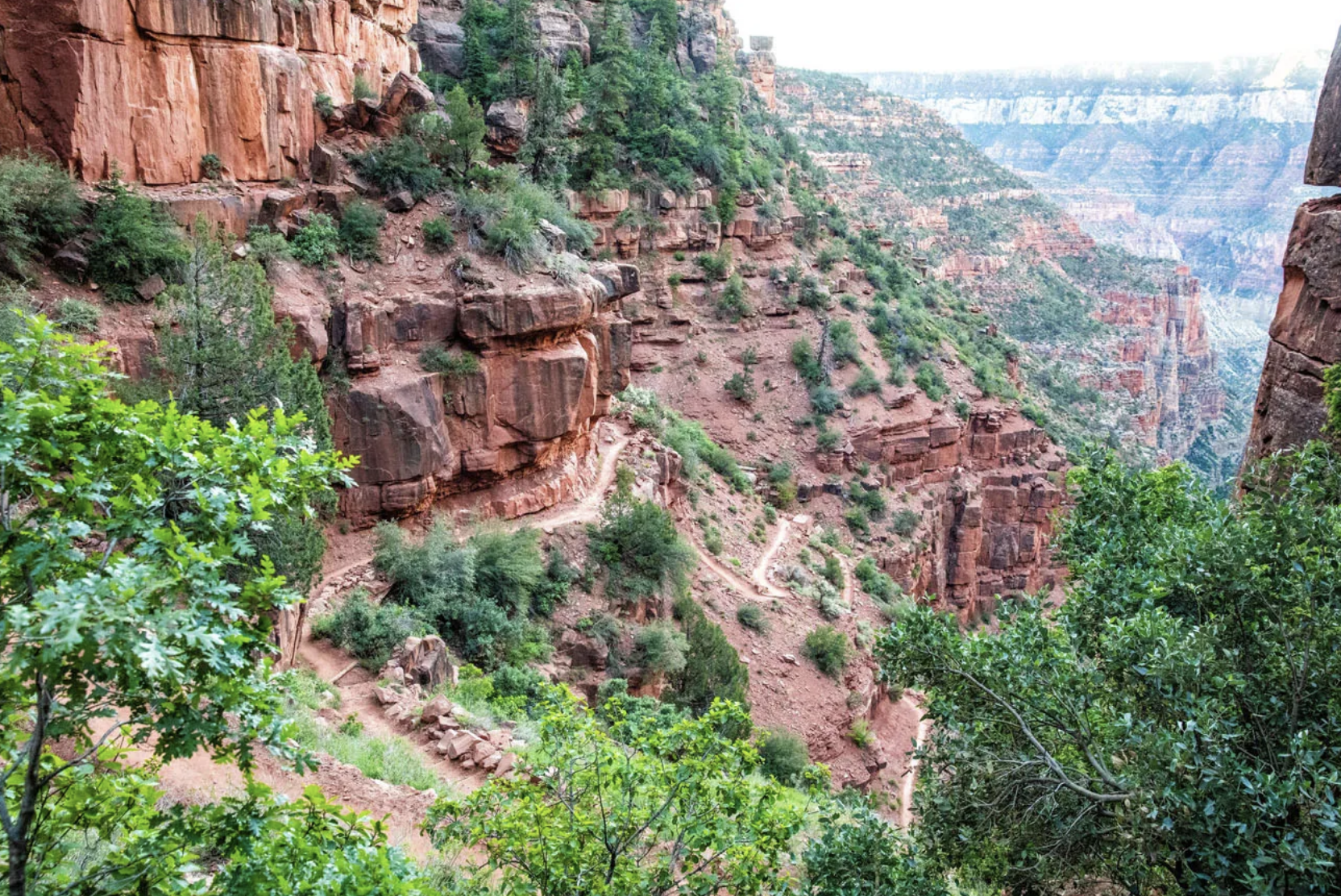The getting through a crisis is akin to running a marathon or hiking the Grand Canyon rim-to-rim-to-rim – it is in its greatest part, a mind game – and a game that you will win or lose, depending upon the quality of your preparation, your assessments and your resources – but also on your mindset and resourcefulness. Your mindset affects your resourcefulness.
Many years ago, when I hiked the Grand Canyon for the first time, I elected to do rim-to-rim-to-rim. I spent months preparing assiduously and seriously. My friends and I hiked and/or ran every trail and mountain in Phoenix and its surroundings, just about, day in and day out for months, and in all kinds of weather. We took step-aerobics and yoga classes, worked out with weights, managed our diets and spent a bundle buying all the requisite equipment and supplies.
We arrived at the South Rim the afternoon before the big day, meandered around the site getting relaxed and acclimated, had the traditional pasta dinner in the Lodge, were in bed before ten p.m. and up bright and early the next morning, backpacks on, hydration taken care of and off in the trolley to the Bright Angel trailhead.
The first nine miles were all downhill, it was cool and beautiful in the four a.m. semi-darkness and when the sun came up, the views were just absolutely spectacular. The seven miles across the Canyon floor were a breeze. There was beauty all around and I took the time to admire and engage with the environment.
Then, after having hiked for most of the day we crossed the Silver Bridge round mid-afternoon. That got us to the start of the North Kaibab Trail. The climb up the North Face of the Grand Canyon. We were psyched and ready. We knew it was going to be a push and we were down for it. Or up, or whatever. We had trained long and hard. We were prepared. And it went really very well. At first!
The North Face of the Grand Canyon is steep. It rises on a 15 – 20% grade. The trail up is a series of switchbacks, six- or maybe seven-foot wide paths along cliff edges that plunge hundreds of feet down to the Canyon floor. By the time we got to it, we had been walking all day and though the sun had not been unkind, the sixteen miles had begun to wear on all of us. We were stoked, though, and initially did not notice.
Then, somewhere along the cliff face, the weather changed. The skies got dark, the canyon got darker and darker. It began to rain – cold, driving, incessant rain that completely ignored our special Rei rain gear! Water was running down the trail in little rivers and waterfalls. We were, very soon, very soaked, through and through. In addition to having to contend with the steep climb and the driving rain, our boots were also very soon filled with cold water and mud and we and the other hikers were slip-sliding and sloshing and cursing and swearing!
The North Rim is situated at an elevation of more than eight thousand feet; it matters to your breathing apparatus. But, there we were, climbing the steep North Face in cold, driving rain, swashing and slipping in mud, in increasing darkness, thinning air and lessening oxygen.
It was brutal. There is no other description that would apply. It was a brutal two, three, five hours or whatever. We lost count. We stopped counting. We just kept our heads down, literally, and kept our feet moving, putting one in front of the other, increasingly slowly, deliberately, painfully. Finally, after much stopping and starting, and slipping and sliding, we made it to the top. We all made it safely – and proudly – up and out, through those last five or six brutal miles, hours, whatever – to our non-hiking friends waiting for us in a van carrying cold beer and hot chocolate.
It was our mindset that got us up that cliff face. Our getting up that North Rim was entirely a case of mind over matter.
We had known what to expect. We had gathered all the available information, prepared ourselves physically and mentally, read the personal accounts and spoken with other experienced Canyon hikers and even with a couple of Grand Canyon Park Rangers. We had done our own physical and mental assessments and preparations and had accessed our networks and support systems and yet it was hard. It was a brutal climb. But because we had done the advance work, however, we did emerge wiser, stronger, and proud of our accomplishment and of our newly-acquired abilities – and hiking wisdom.
Every period of crisis offers the same kind of outcome opportunity. Despite any pain, grief or despair we might experience, the human spirit and its will to survive and thrive are formidable. We can always come through and come through well. You, too, can get yourself through your crises like a boss. If you do the work.


